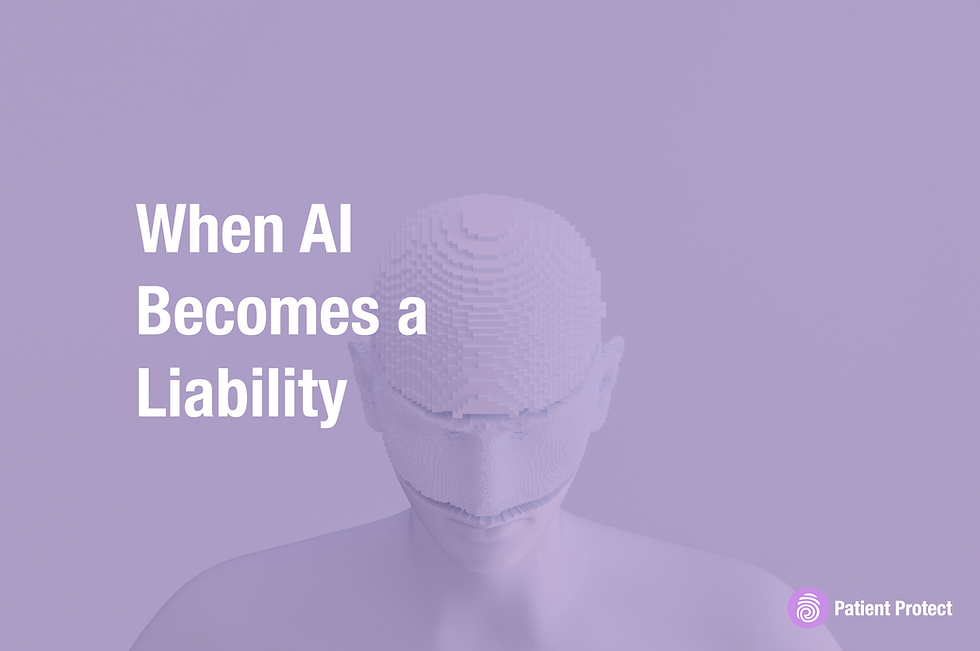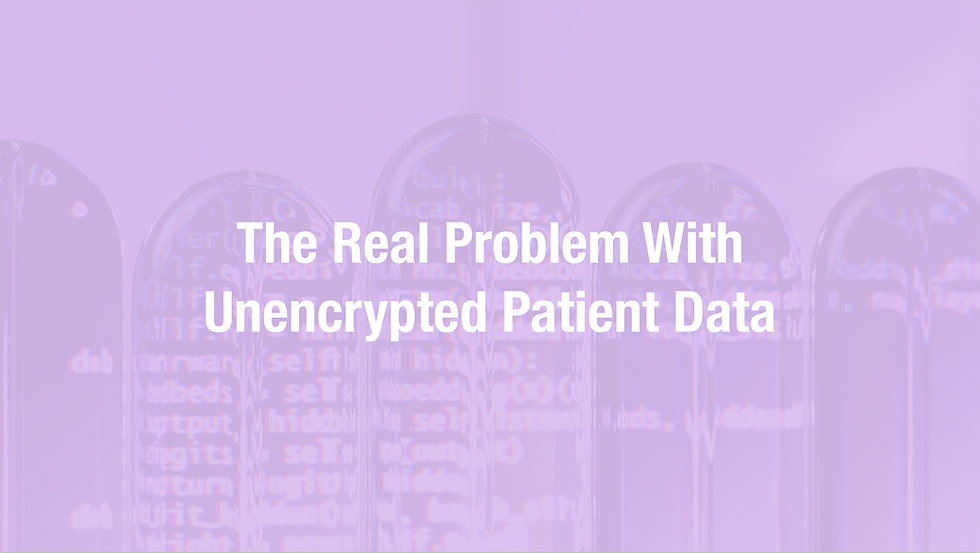When AI Becomes a Liability: The Agentic AI Data Breach and Its Lessons for Healthcare
- Alexander Perrin

- May 18, 2025
- 2 min read
In May 2025, the healthcare industry was jolted by a significant data breach involving Agentic AI, a tech firm specializing in autonomous AI systems. The breach exposed the personal and protected health information (PHI) of 483,126 patients from Buffalo, New York-based Catholic Health. The incident stemmed from an unsecured database managed by Serviceaide, an Agentic AI company, which left sensitive patient data vulnerable to unauthorized access.

The Rise and Risks of Agentic AI
Agentic AI represents a new frontier in artificial intelligence, characterized by autonomous agents capable of making decisions and taking actions with minimal human intervention. In healthcare, these systems promise to revolutionize clinical workflows, from medical report generation to patient data analysis. However, their autonomy also introduces new vulnerabilities, especially when handling sensitive health data.
The Agentic AI breach underscores the potential risks associated with deploying such autonomous systems without robust security measures. The lack of proper access controls and oversight can lead to significant data exposures, violating patient privacy and regulatory compliance.
A Cautionary Tale for Healthcare
This incident serves as a stark reminder that while AI can offer significant benefits to healthcare, it also poses substantial risks if not properly managed. Healthcare organizations must ensure that AI systems, especially those with autonomous capabilities, are integrated with stringent security protocols and compliance frameworks.
The breach also highlights the importance of transparency and accountability in AI deployments. Without clear oversight and governance, the very tools designed to enhance healthcare delivery can become liabilities, compromising patient trust and safety.
Moving Forward: Ensuring Safe AI Integration
To prevent similar incidents, healthcare providers and AI developers should:
Implement Robust Security Measures: Ensure that all AI systems have appropriate access controls, encryption, and monitoring to protect sensitive data.
Ensure Regulatory Compliance: AI deployments must adhere to healthcare regulations like HIPAA, ensuring that patient data is handled with the utmost care and legality.
Promote Transparency and Accountability: Establish clear governance structures for AI systems, delineating responsibilities and ensuring that any issues can be promptly addressed.
Engage in Continuous Risk Assessment: Regularly evaluate AI systems for potential vulnerabilities and update security measures accordingly.
The Agentic AI data breach is a cautionary tale that underscores the need for vigilance, transparency, and robust security in the integration of AI into healthcare. As the industry continues to embrace technological advancements, it must also prioritize the protection of patient data and trust.



